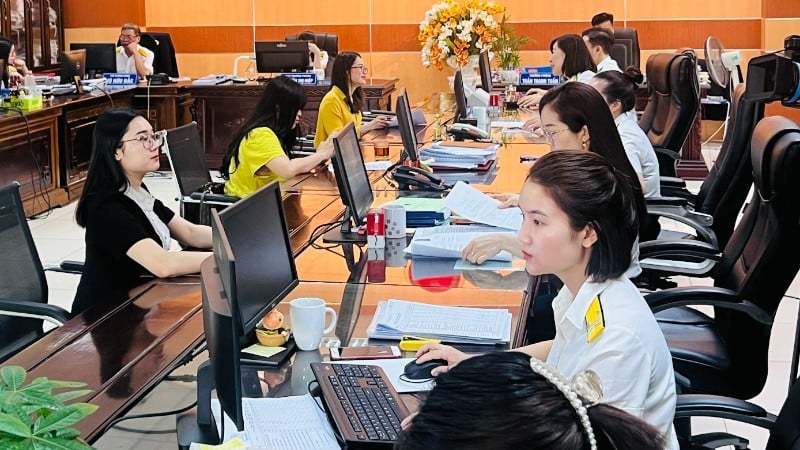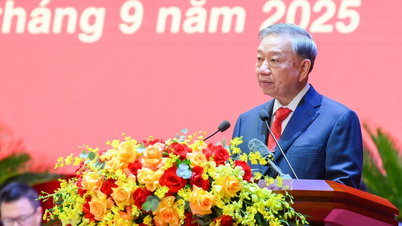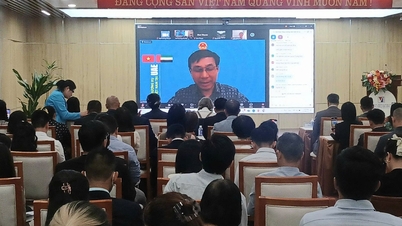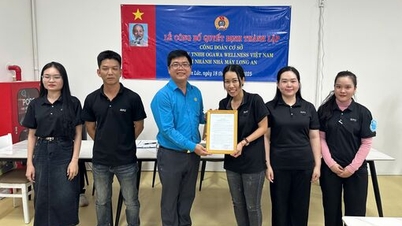
New exemption and reduction policies – encouraging development momentum
One of the breakthroughs of the Draft Law on Personal Income Tax (replacement) is to expand the scope of tax exemption and reduction for groups of subjects that make important contributions to the economy and society. If previously, the tax exemption was mainly limited to scientific and technological tasks using the state budget, now the draft has added many new regulations, clearly demonstrating the strategic orientation.
First of all, tax incentives for high-quality digital technology human resources. In the context of the 4.0 industrial revolution and the trend of shifting global supply chains, Vietnam is aiming to become a center for the production of semiconductor chips, artificial intelligence and key digital technology products. However, the biggest challenge is human resources. Therefore, the draft adds a provision for a 5-year tax exemption for income from salaries and wages of individuals working in the digital technology industry, from research and development projects, production of key digital technology products to training activities.
This is considered a policy “medicine” to attract and “retain” experts, while creating momentum for innovative businesses. International experience shows that many countries have applied tax incentives to build technology ecosystems - from Korea, Singapore to Israel.
Vietnam following this direction not only catches up with the trend, but also affirms its determination to invest in the future!
A humane policy is to exempt taxes for forces participating in UN peacekeeping operations. Since 2014, Vietnam has sent hundreds of cadres, doctors, and officers to peacekeeping missions in South Sudan, the Central African Republic, etc. This force has contributed to enhancing the country's international status and directly participating in protecting global peace. Exempting them from personal income tax during their mission not only ensures fairness with the practices of many other member countries, but also demonstrates the State's respect and gratitude for these special contributions.
In addition, the draft also focuses on innovative startups and venture capital. Startup founders, experts working on startup projects, or investors contributing capital to venture capital funds will be exempted from or have their taxes reduced for a certain period of time. In particular, the draft proposes a 2-year tax exemption and a 50% reduction for the next 4 years for income from salaries and wages of experts and scientists working at research and innovation centers. This is a way to encourage young talents to stay long-term, while creating conditions for the Vietnamese startup ecosystem to develop more strongly.
Another area of strategic significance is tax incentives for investment funds. According to the State Securities Commission, Vietnam currently has more than 80 public open-ended funds with a total asset value of about VND90,000 billion - a figure that is still too modest compared to the market size and capital needs. Meanwhile, up to 99.9% of securities accounts belong to small individual investors, who are easily affected by market fluctuations.
To encourage the development of investment funds - a professional and stable capital mobilization channel, the draft Law supplements the tax exemption for income from transferring open-end fund certificates held for 2 years or more, and reduces the personal income tax rate by 50% for profits distributed from securities and real estate investment funds. This policy closely follows the orientation in the Stock Market Development Strategy to 2030, aiming to gradually shift the investor structure towards professionalism, with a more balanced balance between organizations and individuals. It can be seen that the new exemption and reduction policies do not simply reduce tax obligations, but also have the nature of "public investment" in areas that the State wants to encourage: digital technology, innovative science, professional investment funds, and participation in international responsibilities.
This is an important shift in thinking: “taxes are not just for collection, but also for nurturing, encouraging and guiding development.
Receiving social opinions and long-term orientation
To ensure feasibility, the Ministry of Finance has organized a wide consultation, receiving hundreds of comments from National Assembly delegations, ministries, branches, localities, associations and the people. It is noteworthy that the majority of opinions highly agreed with the expansion of exemptions and reductions, considering this a necessary adjustment in the new context.
Many National Assembly delegations assessed that the additional tax exemption for digital human resources is a strategic step, helping Vietnam compete for talent in the region. Some other opinions emphasized the importance of incentives for investment funds, considering this a prerequisite for the stock market to develop sustainably, reducing risks from retail transactions.

During the reception process, the Ministry of Finance also recorded specific comments. For example, there were opinions suggesting clarifying the criteria for “high-quality digital technology industry human resources” to avoid widespread application and budget losses. There were opinions suggesting limiting the tax exemption period to a reasonable level, avoiding creating too large a gap in budget revenue. Regarding the investment fund policy, there were opinions that close supervision was needed to ensure that incentives were given to the right subjects and not exploited. The Ministry of Finance has committed to reviewing and allowing the Government to specify details in the implementation guidance document, ensuring consistency and transparency.
The highlight of the draft's long-term orientation is the mechanism of decentralization for the Government. Instead of providing too much detail in the Law, the draft only sets out general principles, and gives the Government the authority to regulate tax exemptions and reductions in each period.
This is a flexible approach that adapts to the ever-changing economic landscape. For example, if a new industry needs to be encouraged, the government can quickly add tax incentives without waiting for a lengthy legislative process. Conversely, if a policy is no longer appropriate, it can be adjusted promptly to avoid revenue losses.
Another aspect that has been emphasized is the balance between taxpayers' interests and the budget's interests. It is undeniable that expanding tax exemptions and reductions will reduce short-term revenue. However, in the long term, when people and businesses see fair and reasonable policies, they will have better motivation to comply, contributing to nurturing sustainable revenue sources. This is the philosophy of "nurturing revenue sources" that the Ministry of Finance has repeatedly affirmed: reducing revenue in the short term to create room for growth and increase revenue in the future.
From a social perspective, the new policies have also received consensus from the people. Many IT workers believe that tax exemption for digital human resources is a “push” to help them feel secure in contributing domestically instead of seeking opportunities abroad.
Investors also expect that incentives for investment funds will create more professional investment channels, limit risks, and bring more stable benefits to the market. These responses show that the policy is not only valuable on paper, but also touches the expectations and aspirations of society.
Overall, this Draft Law on Personal Income Tax (replacement) is not simply a change of a few provisions, but a strategic adjustment. The new exemption and reduction policy not only solves immediate difficulties, but also aims at long-term goals: encouraging high-quality human resources, promoting innovation, developing capital markets, enhancing international status and ensuring social justice. These are the pillars for the tax system to both nurture revenue and accompany the country's development in the new period.
With a series of new exemption and reduction policies, the Draft Law on Personal Income Tax (replacement) has shown a more comprehensive and modern approach. Not only does it ensure fairness for taxpayers and reduce procedural burdens, but it also creates incentive mechanisms to promote digital human resources, creative startups, develop investment funds and recognize the special contributions of the United Nations peacekeeping force.
The drafting agency also said that this is proof of a new mindset in tax policy reform: taxes must come first, accompanying development, so that each tax policy not only has fiscal significance, but also becomes a driving force to promote national development.
Mr. Mai Son, Deputy Director of the Tax Department (Ministry of Finance) affirmed: “Currently, the Ministry of Finance is actively participating in building and perfecting policies. We will fully absorb the opinions of people, organizations and experts in the process of perfecting policies to ensure they are close to reality and create high consensus in society. Our goal is to build a policy that is both suitable for management practices and creates favorable conditions for taxpayers to fulfill their obligations according to regulations, towards a more equal and modern business environment.”
Source: https://nhandan.vn/bai-3-kien-tao-dong-luc-phat-trien-ben-vung-post909926.html


![[Photo] Editor-in-Chief of Nhan Dan Newspaper Le Quoc Minh received the working delegation of Pasaxon Newspaper](https://vphoto.vietnam.vn/thumb/1200x675/vietnam/resource/IMAGE/2025/9/23/da79369d8d2849318c3fe8e792f4ce16)

![[Photo] Solemn opening of the 1st Congress of Party Delegates of Central Party Agencies](https://vphoto.vietnam.vn/thumb/1200x675/vietnam/resource/IMAGE/2025/9/24/e648cda95b1e4b92823619e093e50fa4)


















![[Photo] Solemn opening of the 1st Congress of Party Delegates of Central Party Agencies](https://vphoto.vietnam.vn/thumb/402x226/vietnam/resource/IMAGE/2025/9/24/e648cda95b1e4b92823619e093e50fa4)




































































Comment (0)